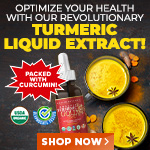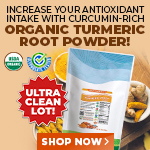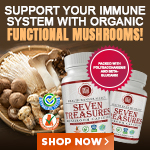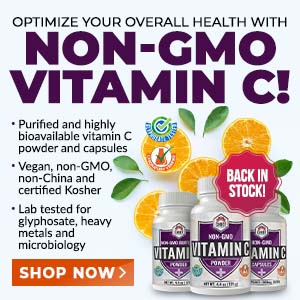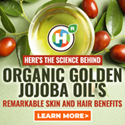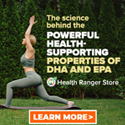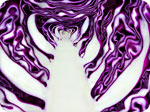
Red Cabbage Found to Contain 36 Anti-Cancer Anthocyanins
Tuesday, October 14, 2008 by: David Gutierrez, staff writer
Tags: red cabbage, health news, Natural News
- Hidden poison in your medicine and supplements: How phthalates in capsules are silently attacking your heart, thyroid, and hormones
- When the storm brings spies: How a top weather app became an agent of surveillance
- Hidden betrayal: Moderna and Pfizer shots hijack immune cells to rewrite mRNA, prolonging spike protein production
- Lard: A highly nutritious but misunderstood superfood
- Judge rules Kansas vaccine lawsuit against Pfizer must proceed in state court
- Health Ranger Report: Dr. Alphonzo Monzo discusses nanotechnology, 5G and the weaponization of health
- CLIMATE PONZI SCHEME DENIED: Trump begins the exit of the BIGGEST WASTE of money, resources and human lives ever and the climate alarmists are freaking out
- The mouth-brain connection: Could dental health guard against dementia (and vice versa)?
- EU court exposes secret Pfizer deal, orders von der Leyen and Bourla to reveal concealed texts
- Breakthrough study reveals how Epstein-Barr and a gene variant heighten multiple sclerosis risk
- Pfizer’s election meddling exposed: Top scientists weaponized science to sway the 2020 vote, so they could benefit from unlawful mandates
- Rudolf Breuss introduces a natural approach to treating cancer and chronic illness in “The Breuss Cancer Cure”
- X-class solar flare sparks worldwide disruptions, with more storms expected as sunspot turns toward Earth
- Thwarted ISIS plot on Michigan military base highlights ongoing domestic terror threat
- Coinbase faces $400M fallout after insider-led phishing attack exposes customer data
- From lifesaving to life-threatening? Study finds CT scans could be causing cancer
- The water cure: Unveiling the hidden link between dehydration, obesity, cancer and depression
- FDA considers overhaul of infant formula requirements amid growing concerns over nutrition and safety
- WAR ON COGNITION: The Coordinated Assault on Your Brain and How to Defend Yourself Against Every Attack
- Singapore's draconian vaccine mandate: Citizens face jail time for refusing FORCED medical procedures that do HARM
- Big Pharma's Dirty Secret: How Prescription Drugs Are Starving Your Body of Essential Nutrients
- Canada's COVID cover-up: Health officials swore secrecy to protect Trudeau from vaccine scandal
- RED ALERT: Nuclear War Between India and Pakistan Could Trigger Global Catastrophe… full RISK ANALYSIS
- JESUS NEVER SPOKE ENGLISH: Historical facts on why the Bible you’re probably reading has been altered, redacted or hidden from much of its original meaning
- Gene-edited pork sneaks onto your plate: FDA quietly approves CRISPR pigs amid health and ethical concerns
- Silent catastrophe: COVID-19 vaccines linked to plummeting fertility rates, Czech data reveals
- Why All Government Officials and Big Tech CEOs Who Engage in Systematic Viewpoint Censorship Must Be ARRESTED, Prosecuted, and Sentenced to Life in Prison
- Brushing with poison: Study finds toxic heavy metals in 90% of toothpaste brands, including those for children
- Survival basics: 5 Dangerous locations to avoid during an EMP attack
- BBC accused of “political censorship” for shelving Gaza documentary amid mounting pressure
- EU embraces censorship over solutions as energy grid crises spark blackout fears
- Health Ranger Report: Christopher Bjerknes challenges conventional narratives about world history
- Australia’s vaccine cover-up: 35 died same day as COVID shot, but authorities ignored them
- Landmark study of 85 million reveals shocking surge in heart attacks, strokes, and sudden death following the notorious COVID-19 jab
- Hidden poison in your medicine and supplements: How phthalates in capsules are silently attacking your heart, thyroid, and hormones
- The truth about Benzyl Alcohol in beauty products
- The Miraculous Healing Power of DMSO: Nature's Forgotten Cure for Cancer, Pain, and Regeneration
- Biblical truth: God will carry out a “cosmic reset” of Earth and destroy all human civilization with a series of extinction-level cosmic impacts known as The Seven Trumpets, Seven Bowls and Seven Seals
- URGENT REPORT: The China Import Embargo - What to Stockpile Now Before America Runs Out
- The Ultimate Survival Guide to Baking Soda: A Miraculous, Multi-Purpose Remedy for Health, Home, and Emergency Preparedness
- Widespread social and economic unrest: Steve Quayle issues urgent financial warning of imminent asset collapse in new interview with Mike Adams
- Aerosolized bioweapons? Strange “diploid biomasses” falling out of the sky in Florida captured under the microscope
- A call to preserve America’s future: “Defeating Big Government Socialism” by Newt Gingrich
- Stunning Visualization of the Seven Trumpets in the Book of Revelation
- Big Pharma launches “Vaccine Integrity Project” to combat Secretary Kennedy and keep 94 shots going into kids with mandates and liability protections
- World Economic Forum's current downfall exposes legacy of totalitarianism, financial fraud, and crimes against humanity
- Biden regime deployed over 600 grants to fund disinformation agenda, to silence the truth and stifle debate
- The Miraculous Healing Power of Green Tea: Unlocking the Potent Antioxidants That Big Pharma Doesn't Want You to Know About
- The unspoken truth about chemotherapy: These “treatments” create toxic time bombs in your body called CELL-KILLING PARTICLES
- U.S. Government's Bio-War Against America: 15 Historical Medical Horrors Inflicted on the American People by the Government Itself
- A win for free speech: State Department SHUTS DOWN controversial disinformation office
- U.S. demands U.K. protect FREE SPEECH, repeal hate speech authoritarianism, in latest trade deal negotiations
- French rioting demonstrates how gun control laws are failing law-abiding citizens
- Head of L.A. Port warns of incoming plunge in U.S. supply chain, empty shelves and inventory depletion in 5-7 weeks
- Red Cross issues warning to stop blood plasma donations from vaccinated people
- Scientists confirm: GENIUS brain function can be spontaneously unleashed in humans without any apparent cause
- EPA advisor admits the agency is funneling billions to climate groups ahead of Trump’s return to White House
- HYSSOP: What research reveals about the health benefits of this ancient holy herb
- Two containers with completed ballots fall out of truck in Florida
- Newly released JFK files reveal Pentagon's role in creating Lyme disease and covid in the same lab
- Mike Adams releases country western hit single: Goin’ Back in Time is Comin’ Home
- Global leaders unite to clamp down on “misinformation” with UN-backed Cascais Declaration
- BREAKING: 2025 NDAA authorizes mandatory military draft of WOMEN across America… as Pentagon pursues global NUCLEAR war with both Russia and China at the same time
- I Want My Bailout Money – new song released by Mike Adams
- Michael Yon warns of a ZIONIST TAKEOVER in Trump’s second administration
- Ozempic and Wegovy weight loss drugs are injectable LIZARD VENOM PEPTIDES that may unleash a devastating wave of organ failure… side effects align with symptoms of SNAKE BITES
- The Health Ranger releases “Vaccine Zombie” song and music video, using AI-animated zombies for the music video
- BOMBSHELL: DNA testing kits are a SCAM to develop ethnic-specific bioweapons
- These 13 countries just signed an agreement to engineer a global FAMINE by destroying food supply
- Israeli soldiers accused of even more torture and abuse in the West Bank
- RFK Jr. clears key hurdle: Sen. Susan Collins backs controversial HHS nominee, signaling a new era for health policy
- Sermon 30: How Jesus reveals Caesar’s FAKE CURRENCY and FALSE AUTHORITY
Anthocyanins are naturally occurring pigments that give fruits and berries their red, blue and purple coloration. A variety of studies have shown that in addition to protecting against cancer, anthocyanins can improve heart health and brain function. Another recent laboratory study by the ARS found that some varieties of anthocyanin have twice the antioxidant effect of vitamin C. The effects of those different antioxidants in the human body have not yet been tested.
In the current study, researchers fed 12 volunteers a carefully controlled diet that contained either 2/3, 1 1/3 or 2 cups of cooked red cabbage per meal. The volunteers ate two meals per day for three days.
The researchers found that participants absorbed the most anthocyanins when eating the largest serving of cabbage. In addition, they identified 36 different varieties of the chemical in the vegetable, eight more than were previously known.
The anthocyanins were absorbed at different rates by the body, depending on whether they were acylated or non-acylated. Acylated anthocyanins, composing 80 percent of the anthocyanin content of the cabbage, were more stable and less easily absorbed by the body. In contrast, non-acylated anthocyanins were at least four times more bioavailable than the acylated variety.
Another recent study, conducted by Japanese researchers, found that anthocyanins modify the functioning of fat cells and may help fight the symptoms of metabolic syndrome.
Metabolic syndrome is a cluster of symptoms linked to cardiovascular disease and diabetes, including fasting hyperglycemia, high blood pressure, central obesity, lowered HDL ("good") cholesterol and elevated triglyceride levels.
Red cabbage at FETCH.news
Get independent news alerts on natural cures, food lab tests, cannabis medicine, science, robotics, drones, privacy and more.
Take Action: Support Natural News by linking to this article from your website
Permalink to this article:
Embed article link: (copy HTML code below):
Reprinting this article:
Non-commercial use OK, cite NaturalNews.com with clickable link.
Follow Natural News on Facebook, Twitter, Google Plus, and Pinterest
Science News & Studies
Medicine News and Information
Food News & Studies
Health News & Studies
Herbs News & Information
Pollution News & Studies
Cancer News & Studies
Climate News & Studies
Survival News & Information
Gear News & Information
News covering technology, stocks, hackers, and more



"Big Tech and mainstream media are constantly trying to silence the independent voices that dare to bring you the truth about toxic food ingredients, dangerous medications and the failed, fraudulent science of the profit-driven medical establishment.
Email is one of the best ways to make sure you stay informed, without the censorship of the tech giants (Google, Apple, Facebook, Twitter, YouTube, etc.). Stay informed and you'll even likely learn information that may help save your own life."
–The Health Ranger, Mike Adams















